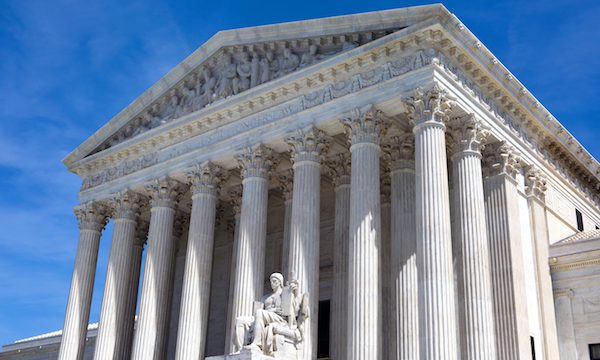
WASHINGTON (TIP): In a pair of historic rulings on Thursday, July 9, the U.S. Supreme Court rejected President Trump’s claim of absolute immunity under the law. The vote was 7 to 2 in cases involving grand jury and congressional subpoenas for Trump’s pre-presidential financial records.
The Supreme Court ruled that a New York prosecutor is entitled to see President Trump’s private and business financial records, ending an intense legal battle waged by the president to keep them secret.
The court said Manhattan District Attorney Cyrus R. Vance Jr. had the authority to subpoena the records from Trump’s private accounting firm. Trump had claimed an immunity from criminal investigations while in office.
Vance is investigating whether the Trump Organization falsified business records to conceal hush payments to two women, including pornographic film actress Stormy Daniels, who claimed they had sex with Trump before he took office. Trump has denied those claims.
Vance is seeking, Trump’s tax returns, among other records. The president has refused to make them public, unlike previous modern presidents. Because the records are for a grand jury investigation, they would not likely be disclosed before the election.
However, in a second decision on the House’s request for similar information, the court appeared to question the breadth of congressional authority.
The Supreme Court ruled that the lower court needs to consider separation of power issues related to the congressional subpoenas, suggesting that Congress did not have unlimited powers to investigate the president. That ruling was also 7-2, with Roberts writing the opinion.
Trump was apparently enraged by the outcome, tweeting a string of criticism that “this is all a political prosecution,” and “Courts in the past have given ‘broad deference.’ BUT NOT ME!”
New York District Attorney Cyrus Vance issued a statement calling the decision in the grand jury case “a tremendous victory for our nation’s system of Justice and its founding principle that no one — not even the president — is above the law.”
Trump’s personal attorney Jay Sekulow took a more optimistic tone than the president in his response to the Supreme Court rulings on the president’s financial information.
“We are pleased that in the decisions issued today, the Supreme Court has temporarily blocked both Congress and New York prosecutors from obtaining the President’s financial records. We will now proceed to raise additional Constitutional and legal issues in the lower courts,” Sekulow said in a statement.
(With inputs from agencies)





Be the first to comment